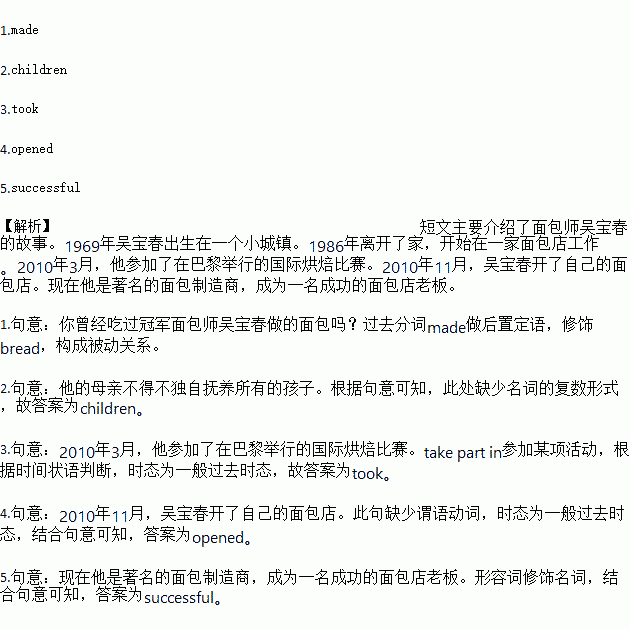题目内容
child ,make, open ,from ,successful, take
Have you ever eaten the bread 1. by the champion baker—Wu Baochun?
Wu Baochun was born in a little town in 1969. When he was 12, his father died. His mother had to raise all of her 2. alone. In 1986, he left home and started to work at a bakery (面包店) to help his family.
He was so hard-working that he could be good at baking. In March 2010, he 3. part in an international baking contest in Paris. He beat the contestants (竞争者)from other countries and won the contest.
In November 2010, Wu Baochun 4. his own bakery. Now he is famous as the top bread maker and becomes a 5. bakery owner.
Wu Baochun is a good example to young people on how to be successful by doing one thing over and over again.
练习册系列答案
相关题目

